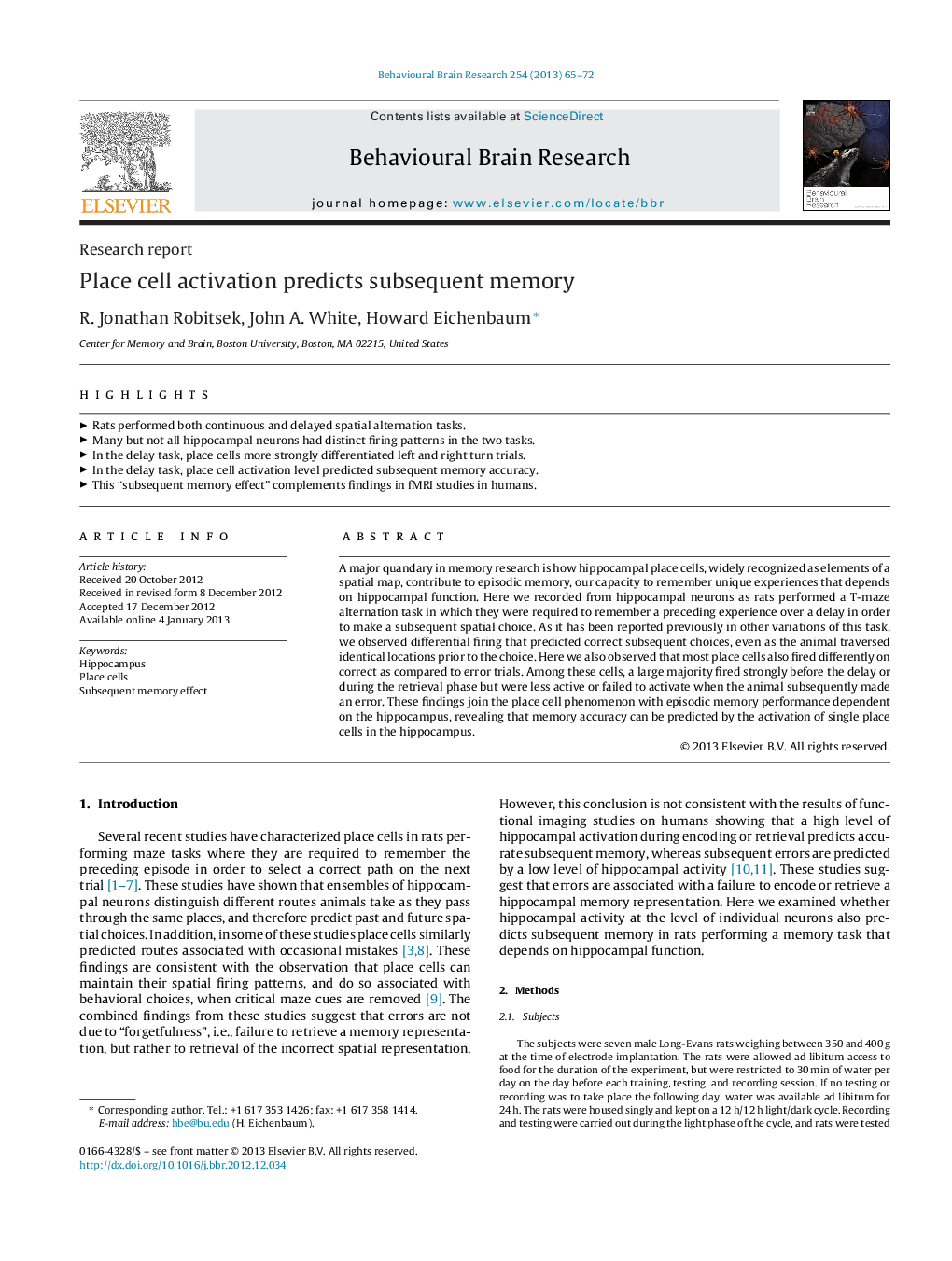| Article ID | Journal | Published Year | Pages | File Type |
|---|---|---|---|---|
| 4312652 | Behavioural Brain Research | 2013 | 8 Pages |
A major quandary in memory research is how hippocampal place cells, widely recognized as elements of a spatial map, contribute to episodic memory, our capacity to remember unique experiences that depends on hippocampal function. Here we recorded from hippocampal neurons as rats performed a T-maze alternation task in which they were required to remember a preceding experience over a delay in order to make a subsequent spatial choice. As it has been reported previously in other variations of this task, we observed differential firing that predicted correct subsequent choices, even as the animal traversed identical locations prior to the choice. Here we also observed that most place cells also fired differently on correct as compared to error trials. Among these cells, a large majority fired strongly before the delay or during the retrieval phase but were less active or failed to activate when the animal subsequently made an error. These findings join the place cell phenomenon with episodic memory performance dependent on the hippocampus, revealing that memory accuracy can be predicted by the activation of single place cells in the hippocampus.
► Rats performed both continuous and delayed spatial alternation tasks. ► Many but not all hippocampal neurons had distinct firing patterns in the two tasks. ► In the delay task, place cells more strongly differentiated left and right turn trials. ► In the delay task, place cell activation level predicted subsequent memory accuracy. ► This “subsequent memory effect” complements findings in fMRI studies in humans.
